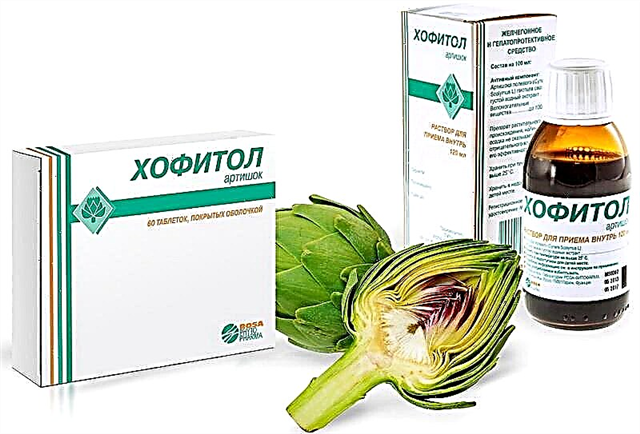Newborn babies have skills from birth that can surprise anyone.
The newly born baby seems so weak and fragile! The instincts of the new mother tell her that the baby needs constant care and anxious care. It seems that the baby can do absolutely nothing and needs help in everything, needs maximum protection from the outside world. However, science thinks a little differently: babies are surprisingly strong. But parents should not try to test the claims of researchers in practice to ensure the authenticity of this discovery.

1. A newborn, lying on the mother's stomach, is able to reach her breast by himself
Not only a woman who gives birth is full of instincts - her baby also follows them. If you put a baby on the mother’s belly, he will crawl to her breast without assistance, newborn babies can themselves crawl to the mother’s nipple - its scent is the strongest “marker” for the baby. The smell of colostrum is similar to the smell of amniotic fluid, which has been a baby's habitat for all 9 months. The baby associates this aroma with coziness, warmth and security.

Interestingly, if a newborn has amniotic fluid in his hands, he will immediately begin to suck his fingers - this will instantly calm the baby.
2. Almost all babies are born with the ability to swim and dive
95% of newborn babies feel as good in the water as in normal conditions. Studies have shown that during swimming, the number of baby's heartbeats decreases by 20%, and the blood flow of the baby is significantly slowed down. Such physiological indicators clearly indicate that the child does not have a fear of water. And the diving reflex, with which a baby is born, helps the newborn maintain an adequate supply of oxygen for the brain and heart. This ability will help the baby stay underwater for a while. Adults specifically learn to hold their breath in order to stay under water for a certain time, and babies are born with this ability.

But even more surprising is that when the baby is six months old, all of the above skills suddenly disappear.
3. In the mother's womb, the fetus grows mustache and body hair, which he eats
By the end of the third month of pregnancy, hairs grow on the body of the fetus. First they appear above the lip, and then throughout the body. This cover is called lanugo and it disappears about a couple of weeks before giving birth. The hairs fall out and are absorbed by the fetus along with the amniotic fluid, which he constantly swallows.
4. The fetus has the ability to regenerate the mother's body
If a woman gets any injuries while waiting for a baby, her baby inside forms a whole stock of stem cells for quick recovery. Minor malfunctions in the work of internal organs can be adjusted by the fetus without the mother using any drugs.

5. Until 1905, newborns were operated on without anesthesia
It is scary to think that in the 19th and 20th centuries, doctors believed that newborns did not feel pain. This theory became popular "thanks to" experiments on baby animals. Doctors seriously believed that newborn babies did not have a conscious memory, which eliminated the need to administer pain relievers. The reason for such shocking rules for conducting operations was research on animals: doctors believed that children did not show pain, but just a spinal reflex. As a result, the babies were operated on without anesthesia. Indeed, babies are very strong, since they have withstood such torture.

6. Newborns can drink and breathe at the same time
Babies have a breathing characteristic that any adult can only envy: babies are able to swallow and breathe at the same time. The larynx of babies is higher than that of adults. It does not close the airway even when the baby swallows liquid. Newborns can suckle and breathe fully. This skill lasts up to about 9 months: by the year, the crumbs begin to gradually form the speech apparatus, and its larynx goes down. For this reason, the ability to breathe and swallow at the same time is lost.
In addition, newborn babies breathe 2 times more often than adults. Babies cannot breathe through their mouth - this skill is acquired by the child later, with the first nasal congestion.
7. The kid acts on mom like a drug
A newborn baby has a positive effect on the mother, giving her a feeling of joy and complete euphoria. When she touches the baby, she feels a feeling of sincere happiness and during this, the mother releases a large amount of oxytocin into the blood. This hormone is responsible for pleasure - it reduces pain and relaxes muscles well. Thanks to the baby, the mother's body recovers faster after natural childbirth or undergoing caesarean section.

8. Babies' fingers do not leave fingerprints
Each adult's fingerprints are strictly individual: they represent a sweat trail. And in children, secretory activity is reduced, so it is simply impossible to remove a full-fledged fingerprint. And in newborns, they are not yet covered with a sweat trail due to the reduced secretory activity of the endocrine glands. This is why baby's fingers wrinkle so quickly in the water.
9. The newborn can be lifted by the handles thanks to the grasping reflex.
The child has an extremely developed grasping reflex - he quickly reacts to any touch of his open palm. The kid on an instinctive level quickly captures everything that falls into his little hand and fixes it securely. Scientists say that thanks to this reflex, the baby can even be lifted above the bed. But they do not recommend checking this - the baby may suddenly loosen his grip.

10. Babies remember their mother's language and intonation even before birth.
While still in the mother's belly, the baby is able to recognize the intonation and voice of his mother. When a baby is born, he begins to adopt them, imitating his mother. Scientists called this amazing feature of newborns "crying melody."



